WA’s starving ballerina case leaves burning questions about what drove her parents
The extraordinary case of a ‘starving ballerina’ has intrigued the nation, posing the burning question: What possessed her wealthy and educated parents to do what they did?
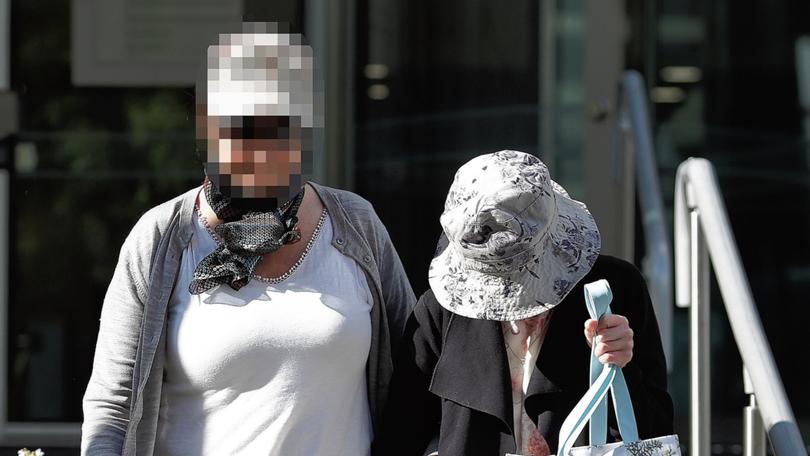
To neighbours of their $3.5 million western suburbs home, they were the successful couple who loved their “beautiful ballerina” daughter.
But behind closed doors, they were deeply unhinged parents who wanted to keep her their own tiny dancer.
For the past four weeks, the State was gripped by the disturbing case of Floreat’s so-called “starving ballerina” in WA’s District Court.
Sign up to The Nightly's newsletters.
Get the first look at the digital newspaper, curated daily stories and breaking headlines delivered to your inbox.
By continuing you agree to our Terms and Privacy Policy.On Wednesday, her parents were convicted of severely malnourishing their only child and also infantilising her, keeping her in a “Peter Pan” state, refusing to let her grow up.
The latter convictions, concerning the child’s social, emotional and functional development, are believed to be the first of their kind in WA.
But the question that remains is, why?
Dance teacher Tania Shillington first raised concerns with the parents in early 2019 when the girl was turning 15.
Another teacher at a different studio, Michelle Doepel, was similarly disturbed when the youngster started classes with her in early 2020.
The pair independently alerted the Department of Communities, which finally opened an investigation later that year.
It’s understood a concerned relative had already told the department the girl was wearing nappies up until she was 15 because she had obsessive compulsive disorder and was terrified of using public toilets.
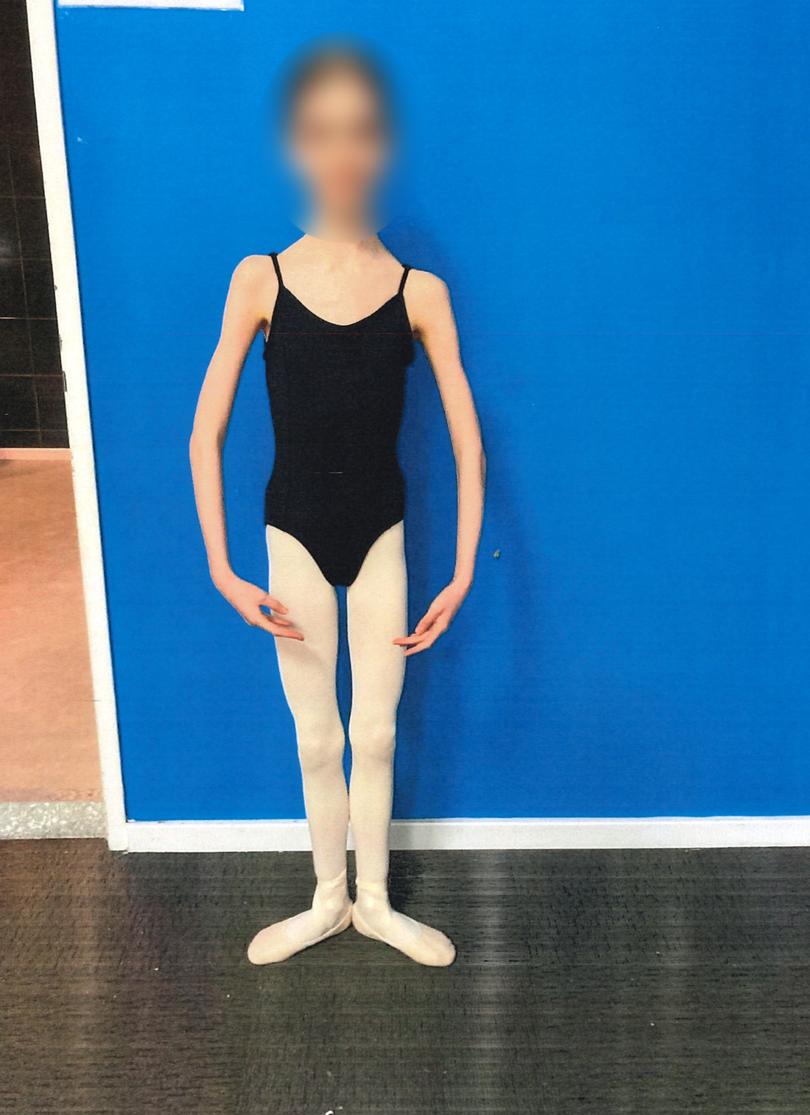
The few dance students who visited her home reported seeing her eat baby food and were even offered some.
And when the emaciated 17-year-old was admitted to Perth Children’s Hospital for 50 days in early 2021 — with medics fearing she would suffer cardiac arrest — staff reported seeing her mother wiping her after she used the toilet.
She also helped her daughter wash her hands, brush her teeth and comb her hair.
The mother claimed it was all situational — that she was either helping the girl move around with a nasogastric tube, trying to soothe her or assist with the OCD that both parents and daughter suffered with.
Nurses and social workers reported the stunted teen sitting on her mother’s lap, both of them clinging to each other and crying.
They also observed the parents encouraging her to sing along to TV shows like The Wiggles and “spoke for” the girl, who would look to them for guidance when asked a question as basic as her own age.
Claims she had gluten, dairy and soy intolerances were found to be untrue.
Asked about “chemicals” being listed on a dance school form as an allergy, the mum claimed her daughter had been “burnt” by cheap make-up at one of the studios. It was a remark that appeared to stun Judge Linda Black.
The woman tearfully testified that her controlling and verbally abusive husband had taken control of her phone and deleted messages, and that, as a result, she wasn’t aware the department had been trying to intervene for months.
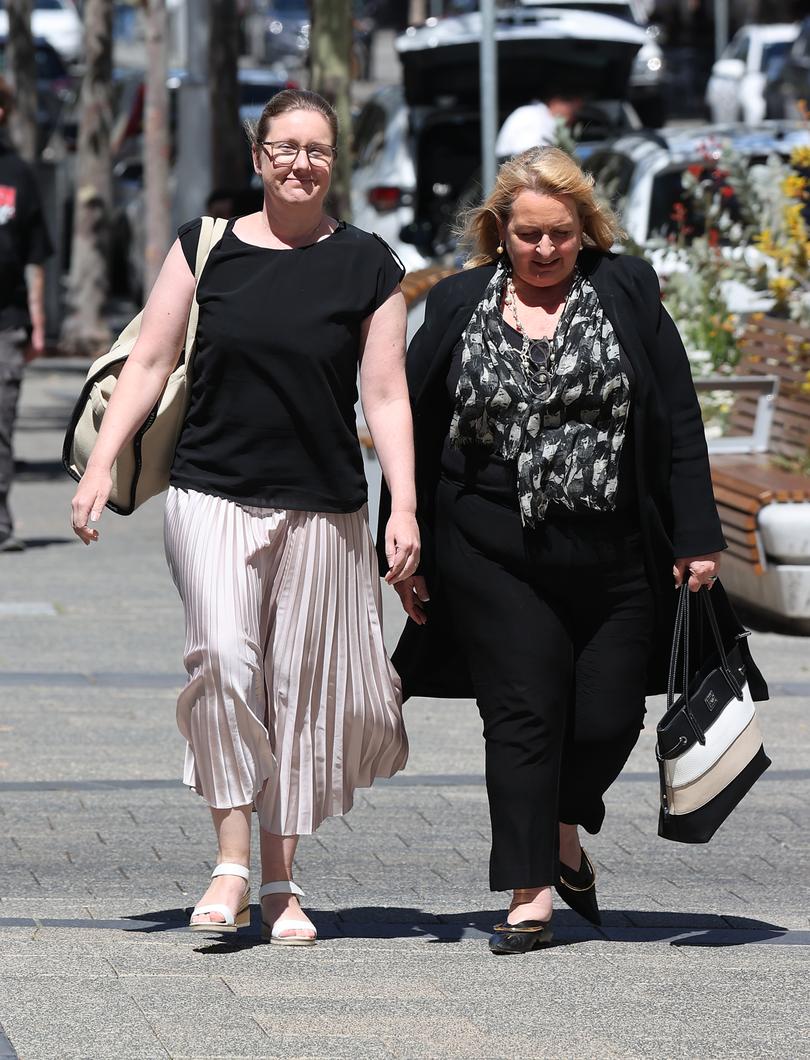
Prosecutor Jehna Winter dismissed the claim as a complete fabrication, concocted to try to make him take the fall.
The jury agreed that both parents — the father an IT expert and the mother a writer who quit to home-school their only child — were to blame.
Hospital staff saw no evidence she had an eating disorder, but adhered to a strict organic vegan diet, which the parents testified she had chosen herself from age 12.
They insisted she had healthy, plentiful meals and snacks boosted by supplements but was a “fussy” eater, requiring medical help to get her onto solid foods when she was young.
Regular dance classes — her main exposure to the world outside her home — were not identified as the cause of her shockingly low weight.
Ms Shillington said that when she met the girl in 2017, she thought she was ”tiny” for an 11-year-old, as her parents claimed her to be.
But she eventually found out her student was actually 13, which was even more alarming.
Over the years, Ms Shillington watched all the other dancers put on muscle mass and start puberty.
Why would you do this to your own kid?
“And she just clearly wasn’t,” the ballet school director and physiotherapist told The West Australian.
“In comparison, she looked like she was fading away. She just remained child-like, pixie-like.
“I was just trying to get some understanding whether she was restricting her own diet. We never really saw her eat much at the studio.
“And when I spoke to the mum at length, and even the child, they just were convinced that she was eating a lot and that she was getting adequate nutrition.”
Ms Shillington repeatedly asked the parents for a medical certificate to prove the girl — who was observed unable to even open bottles of water without assistance — was fit to dance.
Separately, Ms Doepel pressed for them to take her to a dietician.
But “they were in no way going to engage”.
“They were not listening. There was just no budging them,” Ms Shillington said.
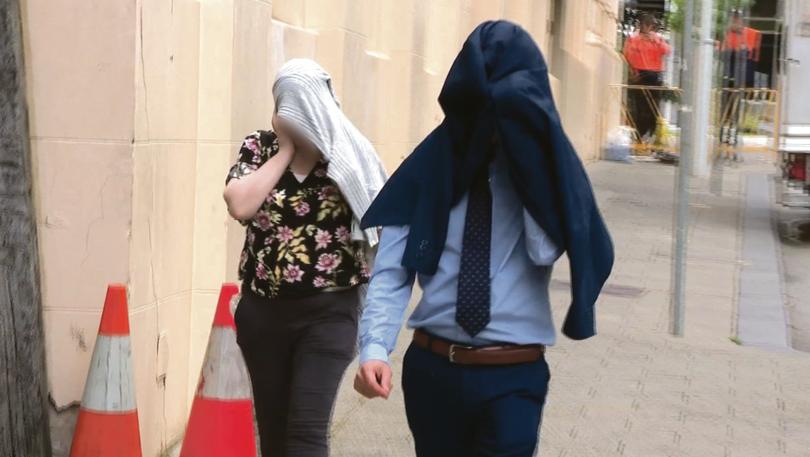
“Why would you do this to your own kid?”
Ms Shillington described the teen as “quiet, not really outspoken in any way”, saying she “kept pretty much to herself”.
She insisted on pretty, sequin-covered, frilly costumes and wore huge bows in her hair.
“Even her little creative dances and her own choreographies were very child-like,” Ms Shillington said.
So what on earth was behind the parents’ distorted thinking?
The prosecutor could only suggest that after their own unhappy childhoods, they had found new purpose in parenting and “kept her small in every way they could ... so they would always be needed”.
Judge Black said, in summing up the State’s case, that the mother “became almost obsessed” with her daughter, worrying about “being left behind” as she grew up.
On the witness stand, the mother touched on body issues among her family and was asked why her daughter had not been weighed for four years before the department took her into care.
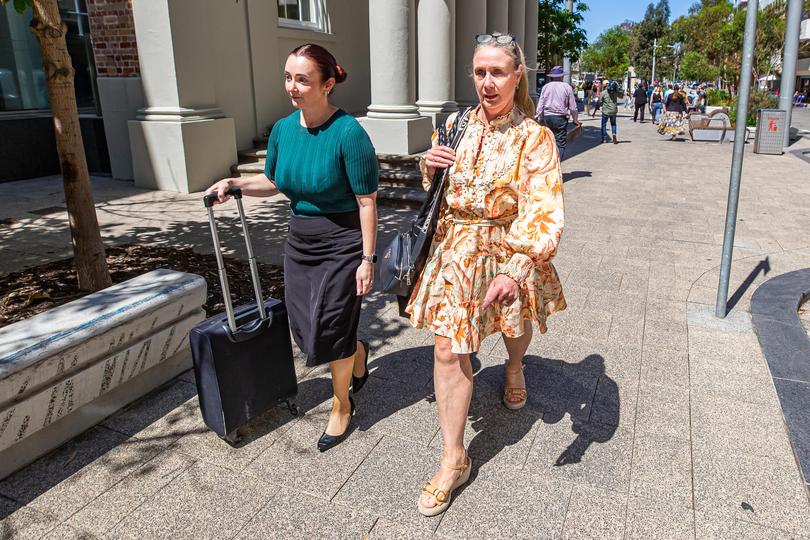
“It was distressing for her,” the woman said.
“My dad used to force me to be weighed and made fun of it. And he did that to her too when she’d been younger.”
She also remarked of her own estranged, psychologist sister “always bragging about herself being skinny”.
Both parents repeatedly insisted their daughter was just taking after them in being “constitutionally small”, with the father using the unusual words “slender is her path”.
For Ms Shillington, the “quite driven” parents may have believed their daughter was going to become a professional dancer — and held an old-fashioned view that this required being wafer-thin.
“At our school, we’re quite realistic with them that it’s really only maybe one in 1000, one in 10,000 actually make it,” she said.
The parents were denied bail after the verdict on Wednesday, with Judge Black pointing to the mother’s bid to drag her daughter to the witness stand the week prior as proof she didn’t not have her best interests at heart and may inflict more harm.
The now 20-year-old victim was metres away from the courtroom when she suffered a panic attack and pulled out of testifying.
Ahead of sentencing in January, the parents will undergo psychological assessments.
The mother’s lawyer, Michael Perrella, said his client suffered “very bad” depression and had been in need of counselling “for years” but was distrustful of medical professionals.
A “thorough” mental health assessment “might explain” her offending, Mr Perrella said.
With the couple warned they will likely remain behind bars, Ms Shillington said she worried about the daughter, left with just a menagerie of pets to keep her company.
“I feel like there’s a very vulnerable little person out there now, just not potentially up to functioning in the adult world,” she said.
